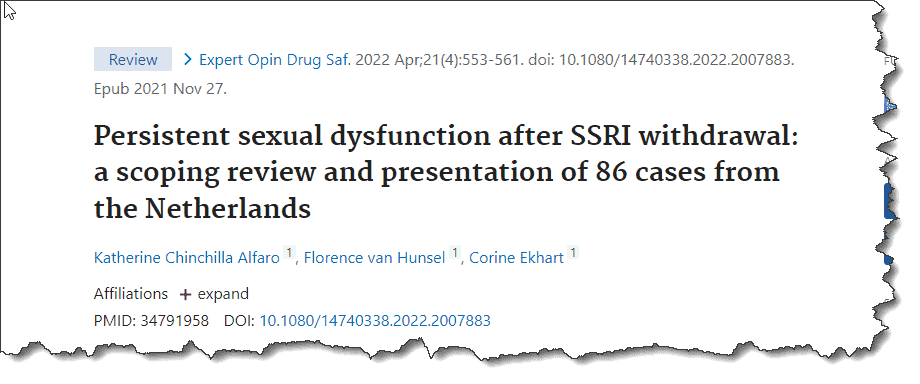
Just 1 sip and you feel your dragon roaring to life…
Unsubscribe | Report as spam | Change email preferences
—-Important Message—-
This beach body brew boosts bedroom performance

Whenever I want to rev up my performance with my wife, Jodi, I drink this beach body brew.
It’s actually safe enough to drink up to 3 times per day! But I usually find that once is plenty for me.
And sometimes I don’t need it at all…I am so happy with my sexual functioning that I don’t need it.
But when I do want it, it’s comforting to know that it helps me get a burst of confidence and energy…
My libido spikes and as soon as I see my wife, I feel my penis waking up…
And then when it’s the right time, I’m standing at full attention.
Sometimes I even look bigger because I’m so rocky and engorged!
Here’s the beach body brew I’ve been drinking — try a sip and prepare to be blown away!
———-
Weird sexual side effects from these popular treatments
I hate SSRIs! I know that’s a strong statement, but bear with me here…
SSRIs are treatments – also known as antidepressants – that are used to treat depression.
They also cause negative sexual side effects.
If you’re on these treatments, your libido is likely to go into the toilet, and you may have trouble with your erections too.

Even though sexual side effects are common with these treatments, doctors don’t often tell you about them.
What makes this even worse is that for some people, those sexual side effects can last persistently AFTER you go off the treatment.
A total of 237 articles were retrieved through the search and 33 articles were selected for inclusion in this review, in accordance with the inclusion criteria. Information regarding the characteristics of the condition, its clinical management, patient characteristics, and impact of PSSD is presented. A total of 86 reports of persistent sexual dysfunction were analyzed. The longest case being a patient with PSSD for 23 years. The main symptoms were: loss or decreased libido (n = 53), ‘penile’ dysfunction (n = 23) and anorgasmia (n = 5).
There is even a name for this condition! It’s called post SSRI sexual dysfunction (PSSD).
The rate of PSSD is unknown.
In the meta analysis done in one study, they found PSSD in 86 patients.
In another study, researchers showed that 55% of participants had sexual function problems 6 months later!
In one clinical study, 55% of participants still had sexual dysfunction six months after switching from an SSRI to amineptine compared to 4% who were treated solely with amineptine, a ‘treatment’ with no action on the serotonin system
I don’t know about you, but I view 55% as an unacceptable risk.
Researchers have no idea what causes this prolonged sexual dysfunction from SSRIs, and they have no idea how to fix it.
PSSD impact includes sexual, psychological, and social consequences. Little is known about the mechanisms underlying PSSD and no effective treatment exists. It is necessary to increase recognition of PSSD among ‘doctors’ and improve its management at the clinical level.
The symptoms of PSSD are terrible and include less sensation, erections problems, and lower desire.
A set of criteria were agreed upon for each of the above conditions. Features of PSSD, PFS and PRSD commonly include decreased genital and orgasmic sensation, decreased sexual desire and ‘penile’ dysfunction.
Remember, these symptoms persist AFTER you get off the treatment.
SSRIs are the most common treatment to have this disturbing side effect, but they aren’t the ONLY treatments that do this.
There is evidence that finasteride, 5 alpha-reductase inhibitors, and isotretinoin can also cause similar side effects.
There is a set of effects that endure after treatment stops that at present are most closely linked to serotonin reuptake inhibiting ‘treatments,’ 5 alpha-reductase inhibitors, and isotretinoin. These include persistent genital arousal disorder (PGAD) first formally described in 2001 [2], post-SSRI sexual dysfunction (PSSD) described in 2006 [3,4], and post-finasteride syndrome (PFS) described in 2011 [5].
I think one of the things that makes me the angriest about all of this…
…is that there are a lot of options for treating depression that work just as well as SSRIs.
These include exercise, eating the right kinds of foods, and meditation.
All of those solutions will also support your sexual function instead of damaging it, but there isn’t profit in them for Big Pharma.
So they aren’t recommended by doctors.
Personally, I’ve decided that taking any of these treatments is bad news, and I’m not taking them.
You’ll have to make your own decisions.
—-Important Message About Having Fun in the Bedroom—-
How to boost oxytocin – and why you want to right now

I’ve discovered a hormone more powerful than serotonin or even dopamine…
It’s called oxytocin and it’s responsible for that addicting, pleasurable feeling you get when you’re intimate with a woman.
And studies show oxytocin even strengthens erections in men:

So how do you boost oxytocin levels for better erections and even more pleasure?
Well here’s the thing — it has to be made naturally in the body…
So what I’ve done is come up with a simple protocol that gets your body to produce more oxytocin on its own.
Here’s how to try this oxytocin protocol tonight
———-

